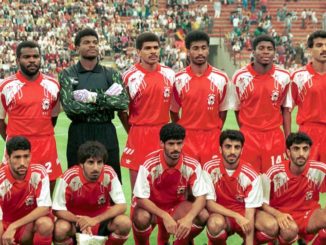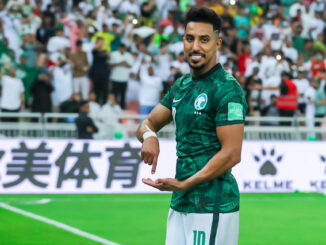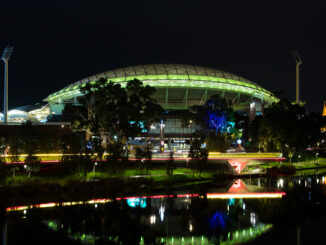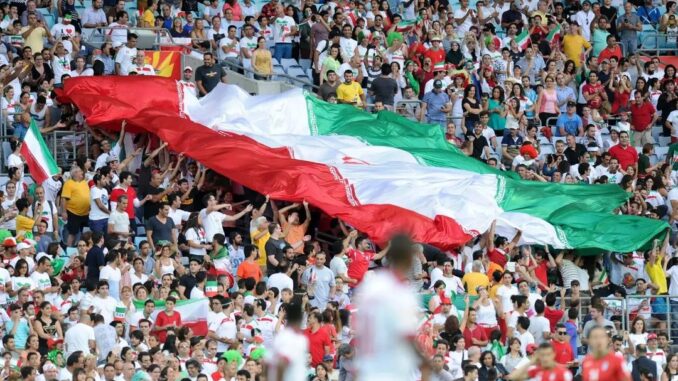

The Asian Game’s coverage of the FIFA World Cup Qatar 2022 is proudly sponsored by SMC.
In what will be their third successive World Cup appearance, Iran’s journey along the Road to Qatar from continental outsiders to major mainstays of the Asian elite has been swift in its execution.
Following decades of intermittent success in qualification, three back-to-back successes in topping the pile in Asia has been achieved alongside a growing standard of player quality, developed in Europe but ready to make a real dent on the world stage.
The muted reaction that greeted their qualification for 2022, in comparison to the significantly more emotional one for Brazil back in 2013, was instantly noticeable, both demonstrating the strides made by a nation who many now consider to be the best team in Asia, but also the considerable swell of support that have refused to move on from that point.
With the resulting aftermath, heralding the return of Carlos Queiroz ahead of the World Cup, it remains to be seen whether the last three years have demonstrated real progress or regression, since the Portuguese coach left back in 2019.
Growing out of Queiroz’s shadow
Queiroz’s stature in Iranian football transcended that of merely the national team coach, to that of an unequivocal symbol of a country’s sport, and at times the perception of Iran outside its borders. His influence across politics, culture and beyond made a campaign for World Cup qualification feel more like a fight for freedom against the establishment than a pursuit to progress to a football tournament.
On the Road to Qatar, the stage couldn’t have seen a starker change in its setting. Led by the unassuming Croatian coach Dragan Skocic, Iran are growingly unrecognisable to the full hearted, rugged Team Melli side that Queiroz dragged through qualification nearly a decade ago.
Back then, the blueprint for defensive stability, and reactionary conservatism matched their footballing stature and their coach’s comfort zone.
Rekindling memories of that famous Reza Ghoochannejhad breakaway goal in South Korea back in 2013 to seal qualification brings back memories that will last for generations to come; regrettably Mehdi Taremi’s winner in Tehran against Iraq in January, was arguably forgotten by the beginning of the next week.
In many ways the transition, from underdog warrior unit to expectant qualifier is where some of Iran’s difficulties stem from heading into Qatar.
Iran previously were a side who relished having a point to prove – against the world, the AFC, their own football federation, to anyone who stood in their way. It unified a team early in their development, magnifying the successes along the road. As the project rolled on, however, that sort of passion became harder and harder to harness over longer, drawn out periods, especially as expectations changed.
By the time Queiroz quit in 2019, following a disappointing semi-final exit at the Asian Cup finals in the UAE, a tournament they were tipped by many to win, the transition from outside nuisance to continental heavyweights became the next priority. A new focus, away from the coach, away from the infighting and injustice needed to be embraced. One arguably out of Queiroz’s reach at the time.
The Skocic approach
Admittedly it’s undeniable that Queiroz’s presence has been missed at times during the recent qualifying campaign; early wobbles that nearly saw Iran derail in World Cup qualification under the naïve and ill-equipped Marc Wilmots had Team Melli fans searching for a time machine.
Yet, Skocic, a professional, flexible but modest coach has become the calming and guiding influence this group quite clearly required. Four wins from four in last summer’s Second Round centralised culmination dragged them over the line, while an uncompromising relentlessness approach in the Third Round proved Team Melli were more than the individual exceptional talent they now possessed.
Embed from Getty ImagesMany have pointed to a so-called easy group draw. While Group A barely ignited past a steady simmer, Iran, alongside fellow qualifiers and regular opponents at this stage, South Korea, had much to do with that.
UAE were in red hot form coming into the final round, flooded with new and exciting talent to choose from; Syria, the 2018 wildcard who’d blitzed through the Second Round at a canter; fierce rivals Iraq who had already beaten Iran earlier in the cycle; and an ever-improving Lebanon all had a claim to, at the very least, keep Iran and Korea to their A-game if they were to progress.
While Syria and Iraq hit the buffers early on, UAE and Lebanon lived up to being stern opponents, two teams Iran endured but conquered. That alongside an early, credible and professionally worked draw with Korea at the Azadi, roundly encapsulated how Skocic approached this campaign.
Time-honoured difficulties rear their head again
The difficulties, however, followed Iran’s qualification to the World Cup, way back in January, as Iran became the first side in Asia to successfully qualify.
The goalscoring hero that night, Mehdi Taremi, who was laying down a strong claim to be Iran’s star man heading into the World Cup on the back of some great form with Porto, both in Portugal and the UEFA Champions League, was abruptly dropped for the forthcoming international window at the end of March following a reported breakdown in relationship between coach and player.
Falling to a first defeat of his tenure, at this point, poignantly in South Korea, nearly a decade on from that famous night in Ulsan, only added to a fractious feeling around a growingly divided camp from which Skocic couldn’t escape.
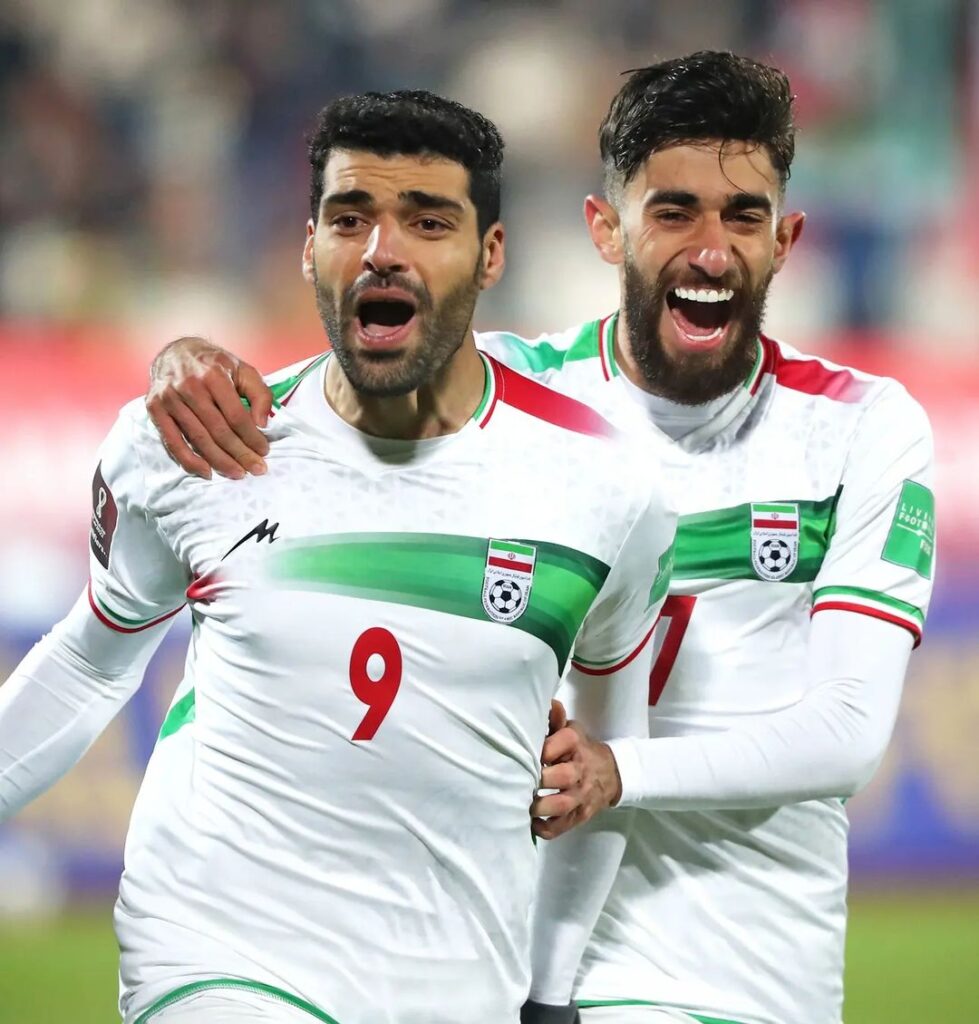
In a match that was largely a dead rubber between two sides who had already guaranteed their place in Qatar, Skocic apologists would discount too much weight being put on the defeat. However, it undoubtedly ignited the start of Skocic’s declining favour amongst Iranian fans.
The Iranian soap opera that we’re all too familiar with rebooted at arguably the worst time for preparations. The age-old difficulties in arranging adequate friendly opposition in the run up to a major tournament resurfaced; with anger this time being apportioned to the coach, instead of solely with the football federation.
As we stand, just months away from their kick-off against England in Group B, with political reshuffles and the increasingly charged clash with the United States ahead, Skocic was on borrowed time. Despite clinging on to his job under mounting media and political pressure, the burden finally saw the coach that had secured qualification only nine months prior fall out of favour.
Prospects for Qatar
After months of speculation, the rumour mills in this case succeeded in their ambition to have Carlos Queiroz return to the Team Melli top job. With the problem of potential compensation payments to be paid to Skocic shelved until the new year, the merits of Skocic’s achievements over the last qualification cycle can’t be disregarded in how the national team has moved forward under him.
The “team” ethic created under Queiroz, was built on defence, with attacking output treated as a bonus; only recording on average a goal per game in each of the previous two final round qualifications.
This time around, output has been prioritised, 15 goals in ten matches was the joint highest tally alongside Australia during the final stages. The likes of Sardar Azmoun, Mehdi Taremi, Alireza Jahanbakhsh and Karim Ansarifard bolstered the reputation of what can now be regarded as the best attacking setup in Asia.
Embed from Getty ImagesA broadly negative, reactionary focus that has carried over into the World Cup over the last two tournaments, while gaining neutral plaudits, has yet to drive success in progressing the national team to the knockout stages.
Given the quality of options Iran now possess in the final third, Queiroz needs to make full use of what could be argued as Asia’s best chance of making the Round of 16 in Qatar; by adapting an approach that has been keener to protect what they have, rather than seeking out new opportunities.
While the team unity of yesteryear may have evaporated a tad along the Road to Qatar, the understanding of where they stand in the continent has only been amplified.
As Iran prepare to construct a World Cup battle plan with a new coach installed just in time for the big event, Team Melli’s minds need to start focusing on how they can live up to their potential, rather than who will lead them in achieving it.
PHOTO: Instagram/teammellifootball
Listen to Episode 91 of The Asian Game Podcast as we discuss the latest saga engulfing Iranian football with journalist Hatam Shiralizadeh.


